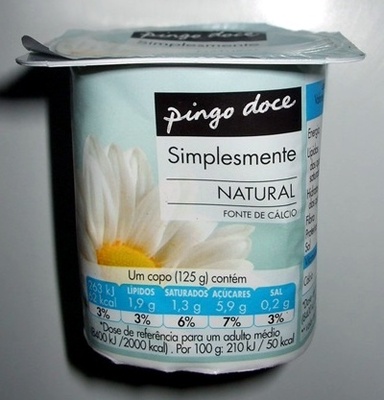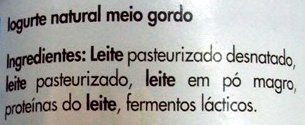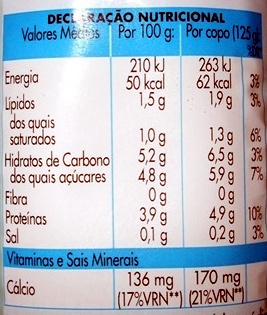Yaourt nature - Pingo Doce - 125 g
This product page is not complete. You can help to complete it by editing it and adding more data from the photos we have, or by taking more photos using the app for Android or iPhone/iPad. Thank you!
×
Barcode: 5601009929085 (EAN / EAN-13)
Common name: Iogurte natural meio gordo
Quantity: 125 g
Packaging: Plastic, Ps-polystyrene
Brands: Pingo Doce, Gelgurte
Categories: Dairies, Fermented foods, Fermented milk products, Desserts, Dairy desserts, Fermented dairy desserts, Yogurts
Labels, certifications, awards: Calcium source, pt:APC
Origin of ingredients: Portugal
Manufacturing or processing places: Guarda, Portugal
Traceability code: PT ILT 39 CE
Stores: Pingo Doce
Countries where sold: Portugal
Matching with your preferences
Environment
Carbon footprint
Packaging
Transportation
Report a problem
Data sources
Product added on by openfoodfacts-contributors
Last edit of product page on by packbot.
Product page also edited by kiliweb, wist, yuka.Vi9vRksva091TWc3bU5waW9pcmMrWXRzeTVIM2VUcThlOEU0SUE9PQ.









